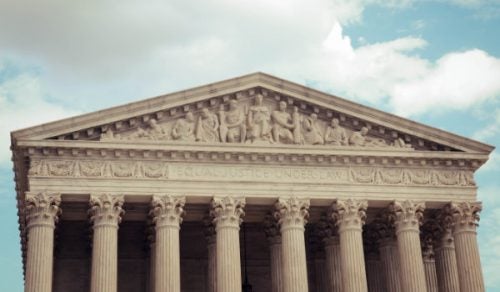Major Requirements

The B.A. Degree in Criminology and Criminal Justice requires a minimum of 30 credits from the following categories.
Make sure to also check the official URI Catalog and consult with your academic advisor for the most current major requirements.
Foundation Courses
Prerequisites to some required core or elective courses. Not for credit in major but strongly recommended as General Education and/or free electives.
- ECN 201 – Principles of Economics: Microeconomics
- GWS 150 – Introduction to Gender & Women Studies
- PSC 113 – Introduction to American Politics
- PHL 212 – Ethics
- PSY 113 – General Psychology
- SOC 100 – General Sociology
Core Courses (9 credits)
These courses are required for all majors.
- CCJ/SOC 230(H) – Crime and Delinquency
- CCJ/PSC 274(H) – Criminal Justice System
Students must receive a C or better in CCJ/SOC 230(H) and CCJ/PSC 274(H) to graduate in the major
- A Capstone Course – One of the following three courses:
-
-
- CCJ 403 – Gender, Crime, and Justice
- CCJ 410 – Race, Crime, and Justice
- CCJ/PSC 476 – Policy, Crime, and Justice
-
Students may also use these capstone class options as elective credit in the major when not being used as a capstone class
Research Methods (3-4 credits)
Students must take one course, selected from the following.
- ECN 306 – Introduction to Economic Research Methods
- PSC 310 – Introduction to Political Science Research (4)
- PSY 200 – Quantitative Methods in Psychology (4)
- SOC 301 – Sociological Research Methods
Major Electives (18-21 credits)
Students choose 6 courses from the following elective areas. At least two courses must be taken from each elective area and no more than four courses can be taken in either elective area. All electives must be a minimum of 3 credits. One-credit courses listed as electives can be combined with other courses to be the equivalent of a 3-credit elective.
Criminology Electives
- CCJ 200 – Topics in Criminology & Criminal Justice (approved topics)
- CCJ 370 – Theories of Crime and Delinquency
- CCJ 400 – Advanced Topics in Criminology & Criminal Justice (approved topics)
- CCJ 403 – Gender, Crime and Justice
- CCJ 410 – Race, Crime and Justice
- CCJ 450 – White Collar Crime
- CCJ 476 – Policy, Crime, and Justice
- AAF 230 – Black Lives Matter Movement
- HIS 366 – Twentieth-Century Black Politics and Protest
- PHL 318 – Power/Justice: Contemporary Political Philosophies
- PSY 254 – Behavior Problems and Personality Disorders
- PSY 466 – Child Sexual Abuse
- SOC 420 – Family Violence, Victimization, and Trauma
Criminal Justice Electives
- CCJ 200 – Topics in Criminology & Criminal Justice (approved topics)
- CCJ 280 – Introduction to Policing
- CCJ 290 – Introduction to Corrections
- CCJ 332 – Juvenile Justice *
- CCJ 333 – Ethics in Criminal Justice *
- CCJ/HIS 361 — Laws & Outlaws: Rhode Island Legal History
- CCJ 381 – Interrogating Criminal Justice Reform (1)
- CCJ 400 – Advanced Topics in Criminology & Criminal Justice (approved topics) *
- CCJ 403 – Gender, Crime and Justice *
- CCJ 410 – Race, Crime, and Justice *
- CCJ 476 – Policy, Crime, and Justice *
- CCJ 480 – Critical Issues in Policing
- CCJ 490 – Punishment and Society
- CHM 391 – Forensic Science Overview (1)
- HIS 366 – Twentieth-Century Black Politics and Protest
- ITR 305 – Workplace Readiness for Social Science Majors (1)
- PSC 334 – Government Powers and the Law (4)
- PSC 371 – The Constitution and the Supreme Court (4)
- PSC 388 – The American Legal System (4)
- PSC 472 – Civil Liberties (4)
- PSY 465 – Introduction to Crisis Intervention
- SOC 303 – Immersion in Juvenile Social and Legal Justice
When appropriate, and by permission of the Department Chair, students may substitute Internship credit (GWS 300, PSC 375/376, PSY 305, or SOC 477 (497)) or Independent Study credit (CCJ 485, GWS 450, PSC 455/456, PSY 489, or SOC 498/499) for one of their elective courses listed above. No more than 3 credits may be used toward the major from Internship or Independent Study.
CCJ Department Learning Outcomes
Goal 1: Students will know the criminal justice system and understand the application of the law
Outcome 1.1: Demonstrate knowledge of constitutional law as it applies to criminology and criminal justice
Outcome 1.2: Locate and interpret research related to discrimination within the criminal justice system
Goal 2: Students will understand the causes of crime and criminal behavior and the social and systematic response mechanisms
Outcome 2.1: Explain the correlates and causes of different forms of criminal behavior and victimization
Outcome 2.2: Identify and evaluate theoretically informed treatment modalities for offenders
Goal 3: Students will use scholarly evidence to inform policy development and practice within the criminal justice system
Outcome 3.1: Summarize and interpret research in criminology and criminal justice
Outcome 3.2: Evaluate policy using theoretically informed research
